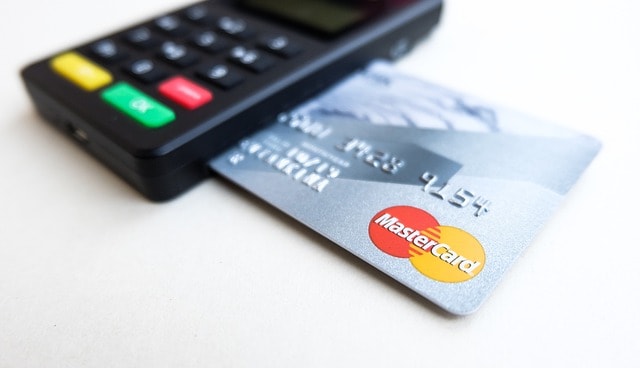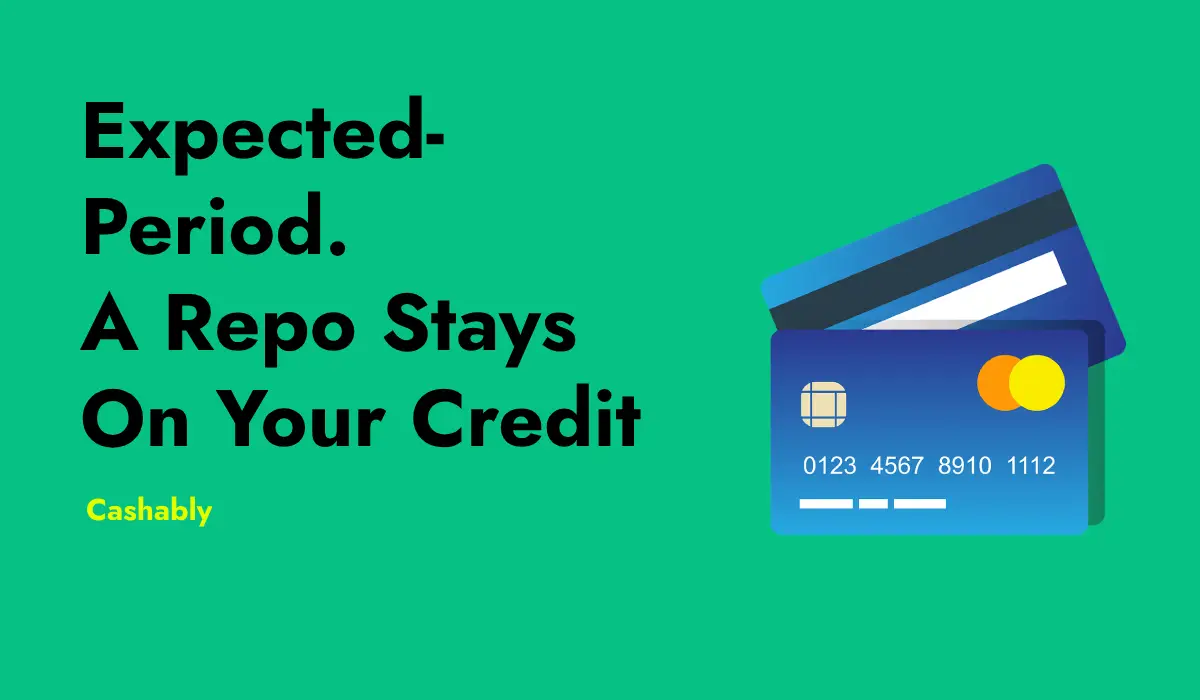When you borrow money to buy a car, you agree to make monthly payments. If you don’t make these payments on time, the lender can take your car back. This process is called a repossession, or repo for short.
A repo can have a big impact on your credit score and stay on your credit report for a long time. Let’s find out more about repo rates what happens when your car gets repossessed and how long this affects your credit.

- Certified pre-approval Process
- Online Application Available 24/7
- Find a Quote Easily
4
editorial team. We score based on factors
that are helpful for consumers, such as
how it affects credit scores, the rates and
fees charged, the customer experience,
and responsible lending practices.

- Certified pre-approval Process
- Online Application Available 24/7
- Find a Quote Easily
- 100% Online Refinance
4.5
editorial team. We score based on factors
that are helpful for consumers, such as
how it affects credit scores, the rates and
fees charged, the customer experience,
and responsible lending practices.

- Boost Credit Score
- Personal Loans
- Credit repair services
5
editorial team. We score based on factors
that are helpful for consumers, such as
how it affects credit scores, the rates and
fees charged, the customer experience,
and responsible lending practices.
- Big or Small Loan
- All Credit Types
- Fast Funding
4
editorial team. We score based on factors
that are helpful for consumers, such as
how it affects credit scores, the rates and
fees charged, the customer experience,
and responsible lending practices.

- High approval rates
- Financial guidance
- Unlimited access to credit options
4
editorial team. We score based on factors
that are helpful for consumers, such as
how it affects credit scores, the rates and
fees charged, the customer experience,
and responsible lending practices.

- Credit monitoring
- Personalized credit tips
- TransUnion® credit report and score
4.6
editorial team. We score based on factors
that are helpful for consumers, such as
how it affects credit scores, the rates and
fees charged, the customer experience,
and responsible lending practices.

- Provide tax advice
- Debt relief services
- Credit repair services
4
editorial team. We score based on factors
that are helpful for consumers, such as
how it affects credit scores, the rates and
fees charged, the customer experience,
and responsible lending practices.

- Est. APR = 0%
- Fees = None
- Recommended Credit = None
3.6
editorial team. We score based on factors
that are helpful for consumers, such as
how it affects credit scores, the rates and
fees charged, the customer experience,
and responsible lending practices.

What is Repo?
A repo happens when you don’t pay your car loan as agreed. The lender has the right to take the car back without warning. This can be very upsetting because it means you lose your car and it hurts your credit score. Lenders usually give you a chance to catch up on payments before they repossess the car, but if you can’t make the payments, they will take it back.
Related: 5 Simple Steps to Improve Credit Score Fast | Proven Steps
How Does a Repo Affect Your Credit Score?
Your credit score is the factor that demonstrates how good and regular you are at paying the interest paid on borrowed money back to the lender.It ranges from 300 to 850. A high score is the sign that you pay back loans on time, and a low score demonstrates that you are not regular in paying back loans.
When a repo shows up on your credit report, it can lower your score by a lot. This is because it shows lenders that you had trouble paying back your loan.
How Long Does a Repo Stay on Your Credit Report?
A repo of your missed payment can stay on your credit card for a long period of seven years. This means for seven years, anyone who checks your credit report will see that you had a car repossessed. The seven years start from the date you missed your first payment that led to the repo. This can make it hard to get a new loan, buy a house, or even rent an apartment.
What Happens After a Repo?
After a repo or missed payment, the lender usually sells the car to get back the money you owed from him. If they sell the car for less than what you owe, you will still have to pay the rest. This is called a deficiency balance. For example, if you owe $10,000 and the car sells for $7,000, you still owe $3,000.
How to Remove a Repo from Your Credit Report?
It’s hard to remove a repo from your credit report before the seven years are up, but it’s not impossible. Here are some ways to try:
- Negotiate with the Lender: Sometimes, you can ask the lender to remove the repo from your credit report if you pay off the deficiency balance. This is called a pay-for-delete agreement.
- Dispute the Repo: If there is a mistake in the repo entry on your credit report, you can dispute it with the credit bureaus. They will investigate, and if they find an error, they will remove the repo.
- Get Help from a Credit Repair Company: Some companies specialize in helping people improve their credit scores. They can help you try to remove the repo from your credit report.
How to Rebuild Your Credit After a Repo
Even though a repo stays on your credit report for seven years, you can start rebuilding your credit right away. Below is the list that contains a bulk of tips that can help you improve your credit score:
Pay Your Bills on Time: Always be responsible about paying the money back on time. Keep in mind missing a single payment can ruin your credit score. If you pay money back on time it shows the lender that you are responsible and regular on paying money back.
Get a Secured Credit Card: A secured credit card is a type of that requires a deposit.
Keep Your Credit Card Balances Low: If you have credit cards, try to keep the balances low. This means not using all of your available credit.
Check Your Credit Report: Look at your credit report regularly to make sure everything is correct. The three credit bureaus offer you a free credit report once a year.
Get a Credit-Builder Loan: Some banks and credit unions offer loans specifically designed to help people rebuild their credit. These are called credit-builder loans.

Why It’s Important to Understand Repos
Understanding repos and their impact on your credit is important because it helps you make better financial decisions. If you know how much damage a repo can do, you might work harder to make your car payments on time. Also, knowing how to rebuild your credit after a repo can help you recover faster.
The Impact of Repos on Financial Institutions and the Money Market
Repos, or repurchase agreements, play a crucial role in the financial ecosystem, particularly for financial institutions and the money market. These short-term borrowing agreements allow institutions to manage liquidity efficiently.
When a financial institution engages in a repo transaction, it essentially sells securities, such as treasury bonds or agency mortgage-backed securities, to another party with the promise to repurchase them at a slightly higher price on a future date. This process injects liquidity into the banking system, enabling institutions to meet their short-term cash needs.
The repo market is essential for maintaining the stability of the money supply and ensuring the smooth functioning of money markets. It provides a secured form of borrowing, reducing credit risk for the counterparties involved. This is particularly beneficial for private banks, hedge funds, and other money market funds and participants who need to invest cash or manage excess cash reserves.
The Role of the Federal Reserve in the Repo Market
The Federal Reserve plays a pivotal role in the repo market by acting as a central counterparty through facilities like the standing repo facility and the overnight reverse repo facility.
These tools help regulate the money market and ensure sufficient liquidity in the financial system. The Federal Reserve Bank conducts repo transactions to influence interest rates, including the fed funds rate, and manage the overall money supply.
By participating in repo and reverse repo agreements with commercial banks, the Federal Reserve can stabilize the repo rate and provide a safety net for financial institutions during times of market stress. This intervention helps prevent liquidity shortages and supports the smooth operation of financial markets.
Repo Market Trends and Challenges
Recent changes in the repo market have highlighted the importance of understanding its dynamics and potential risks. The financial crisis underscored the vulnerabilities in the repo market, as disruptions can lead to significant liquidity challenges for financial institutions. As a result, regulatory bodies have introduced measures to enhance transparency and reduce systemic risk.
One of the ongoing challenges in the repo market is managing the collateral value and ensuring sufficient liquid securities are available for repo trades. The involvement of a third-party clearing agent can mitigate some of these risks by facilitating the settlement process for repo borrowers and ensuring legal ownership is clearly defined.
What is the Federal Reserve doing, and why is it doing this?
The Federal Reserve noticed that there might be a problem with short-term borrowing because it allowed its balance sheet to get too small. They clarified that this is not another round of quantitative easing (QE), which is when they expand their balance sheet to ease monetary policy.
Some people are skeptical, thinking that these actions are similar to QE because they have similar effects. It’s possible to buy items that were bought before, but they aren’t necessarily related to a QE purchase.
Recent Changes in the Repo Market
After the 2008 financial crisis, the US Federal Reserve took important steps to strengthen the weak US dollar economy. For about a decade, the Federal Reserve’s balance sheet hovered around $2 trillion.
When the Fed started engaging in repurchase agreements, they began making necessary purchases. A major increase happened from 2021 to the end of 2023, as stock values were expected to rise. However, the stock market fell to about $5 trillion in June 2023 and then dropped further to under $3 trillion by the end of 2022.
| Year | Stock Market Value |
|---|---|
| 2021 | Expected Rise |
| June 2023 | $5 trillion |
| End of 2022 | Under $3 trillion |
Conclusion
A repo can stay on your credit report for seven years, making it difficult to get loans or rent an apartment. However, there are ways to try to remove it and steps you can take to rebuild your credit. By paying your bills on time, using credit responsibly, and checking your credit report, you can improve your credit score over time.
Understanding repos and their impact on your credit can help you make better financial decisions and recover from financial setbacks.
Frequently Asked Questions
What Does Repo Mean in Slang?
In slang, “repo” typically refers to something that has been repossessed or taken back, often due to non-payment or default.
It’s commonly used in contexts where an item, such as a vehicle or piece of property, is reclaimed by a lender or owner because the borrower failed to meet the payment terms. The term can also metaphorically describe situations where something is unexpectedly taken away or lost.
How Do Repo and Reverse Repo Agreements Differ?
Repo and reverse repo agreements are two sides of the same transaction. In a repo or repurchase agreement however, one party sells securities with the promise to repurchase them later at a slightly higher price. Conversely, in a reverse repo agreement, the buyer of the securities agrees to sell them back to the original seller at a predetermined price and date.
What Role Does the Federal Reserve Play in the Repo Market?
The Federal Reserve plays a critical role in the repo market by providing liquidity through mechanisms like the standing repo facility and the overnight reverse repo facility.
These tools help stabilize the interest rate and rates and ensure the smooth functioning of the financial system by offering a safety net for financial institutions during periods of market stress.
How Does a Repo Transaction Affect Credit Risk?
Repo transactions are considered a secured form of borrowing, which reduces credit risk for the counterparties involved. The use of collateral, such as treasury securities or agency mortgage-backed securities, ensures that the lender has a claim on the assets if the borrower defaults, thereby minimizing potential losses.
Why Is the Repo Market Important for Financial Institutions?
The repo market is crucial for financial institutions as it provides a mechanism for managing short-term liquidity needs.
By engaging in repo transactions, institutions can efficiently allocate excess cash reserves, invest in fixed income securities, and maintain the stability of their balance sheets, contributing to the overall health of the banking system.

- Certified pre-approval Process
- Online Application Available 24/7
- Find a Quote Easily
4
editorial team. We score based on factors
that are helpful for consumers, such as
how it affects credit scores, the rates and
fees charged, the customer experience,
and responsible lending practices.

- Certified pre-approval Process
- Online Application Available 24/7
- Find a Quote Easily
- 100% Online Refinance
4.5
editorial team. We score based on factors
that are helpful for consumers, such as
how it affects credit scores, the rates and
fees charged, the customer experience,
and responsible lending practices.

- Boost Credit Score
- Personal Loans
- Credit repair services
5
editorial team. We score based on factors
that are helpful for consumers, such as
how it affects credit scores, the rates and
fees charged, the customer experience,
and responsible lending practices.
- Big or Small Loan
- All Credit Types
- Fast Funding
4
editorial team. We score based on factors
that are helpful for consumers, such as
how it affects credit scores, the rates and
fees charged, the customer experience,
and responsible lending practices.

- High approval rates
- Financial guidance
- Unlimited access to credit options
4
editorial team. We score based on factors
that are helpful for consumers, such as
how it affects credit scores, the rates and
fees charged, the customer experience,
and responsible lending practices.

- Credit monitoring
- Personalized credit tips
- TransUnion® credit report and score
4.6
editorial team. We score based on factors
that are helpful for consumers, such as
how it affects credit scores, the rates and
fees charged, the customer experience,
and responsible lending practices.

- Provide tax advice
- Debt relief services
- Credit repair services
4
editorial team. We score based on factors
that are helpful for consumers, such as
how it affects credit scores, the rates and
fees charged, the customer experience,
and responsible lending practices.

- Est. APR = 0%
- Fees = None
- Recommended Credit = None
3.6
editorial team. We score based on factors
that are helpful for consumers, such as
how it affects credit scores, the rates and
fees charged, the customer experience,
and responsible lending practices.


 Read More
Read More 





One Response